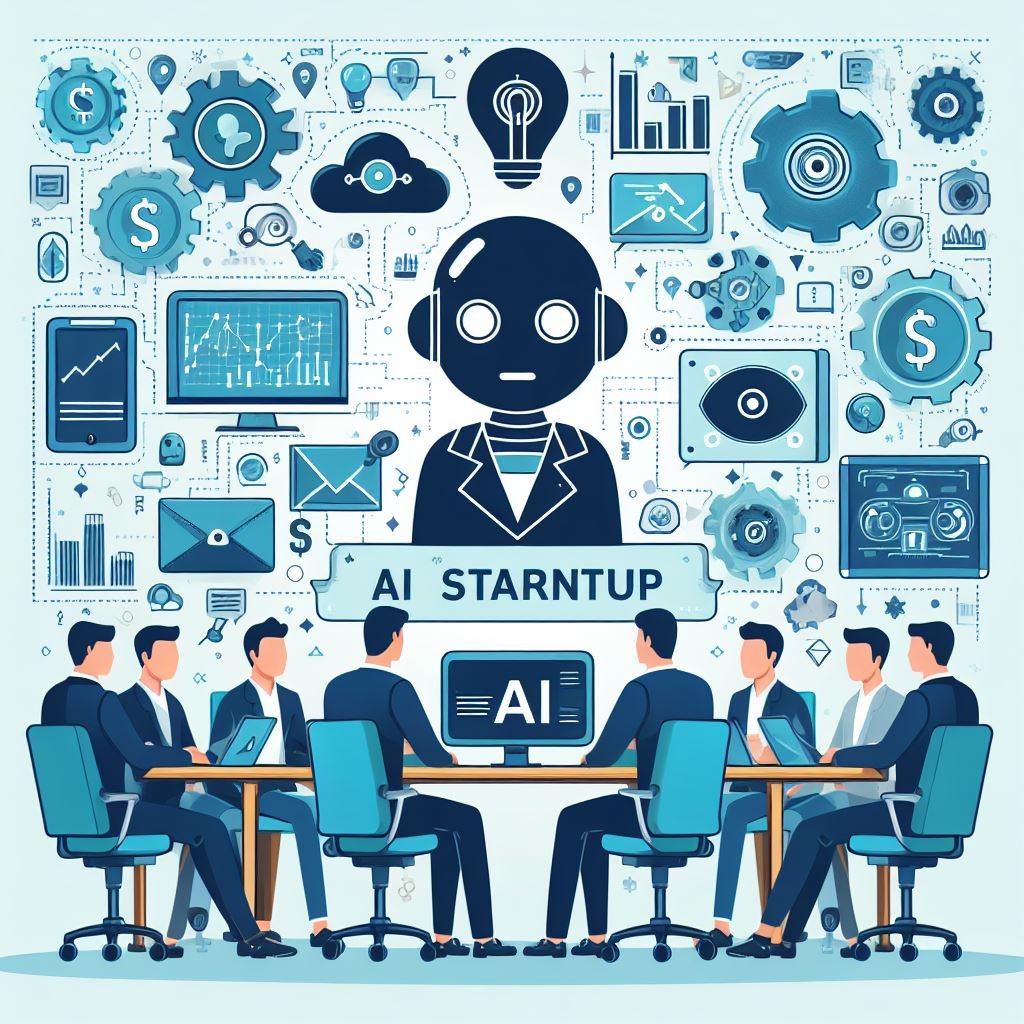The Impact of Artificial Intelligence on Tech Startups

In the world of tech startups, artificial intelligence (AI) is a game-changer, reshaping how businesses succeed. As technology becomes more ingrained in our lives, startups innovate by finding new solutions. AI, once just a fancy tech tool, now completely changes how startups work. It influences how products are made, how customers are served, how funding is secured, and even how competitive a startup is in the market.
What do we mean by AI in startups?
Before we get into it, let's clear up what we mean by AI in startups. Basically, it's using smart technology, like computer systems that learn and analyze data, to make startup tasks work better.
This involves using automated processes and clever systems that can learn and make smart decisions, helping to make things run smoother and improving how the business works overall.
Let's dive into the essential connection between AI and startups to uncover its broad-reaching effects.
Building Blocks: AI for Product Development
At the core of every startup's journey is the quest for innovation, and AI accelerates product development cycles, fostering agility. Real-world examples underscore the transformative impact of incorporating AI into startup operations.
Customer-Focused Approach: AI in Enhancing User Experience
In today's world, where user experience is everything, startups are looking to AI to make interactions more personal. With AI-powered tools, customer support gets a serious upgrade, making people happier and more loyal to the brand.
Securing Investments: AI as a Catalyst for Funding
AI strategically positions startups to attract investors and secure funding, playing a vital role in building investor confidence. Success stories demonstrate that startups with AI at their core secure significant investments.
Overcoming Challenges: Ethical Considerations and Regulatory Compliance
Yet, with the benefits come ethical considerations that startups must navigate. AI introduces potential bias and fairness issues in algorithms, necessitating vigilant oversight to ensure fairness.
As regulations around AI evolve, startups must navigate these frameworks, emphasizing responsible AI practices as essential for sustained success.
Unlocking More Benefits: The Added Value of AI in Startups
Beyond the foundational aspects, AI brings forth additional benefits that significantly contribute to a startup's success.
- Scalability and Efficiency: AI assists startups in scaling operations efficiently by automating tasks, optimizing workflows, and ensuring resources are used effectively.
- Enhanced Decision-Making: AI-driven analytics offer startups real-time insights, facilitating more informed and strategic decision-making.
- Cost Reduction: AI-driven automation improves efficiency and leads to cost savings by automating routine tasks, reducing the need for extensive human intervention.
- Competitive Edge: AI distinguishes startups by offering innovative solutions, attracting both customers and investors, providing a competitive edge in the market.
- Continuous Learning and Adaptation: AI systems, especially those using machine learning, continuously learn from new data, allowing startups to adapt in a rapidly changing business landscape.
AI in Operational Efficiency: A Deep Dive
AI's impact on operational efficiency extends beyond product development. This section explores how startups leverage AI for supply chain optimization, predictive maintenance, and resource allocation.
AI in Marketing Strategies: Personalization and Beyond
Marketing strategies undergo a paradigm shift with AI, reshaping approaches for personalized content recommendations and targeted advertising. AI unlocks new levels of engagement and customer acquisition.
AI and Cybersecurity for Startups: Enhancing Digital Security
Startups are increasingly turning to artificial intelligence (AI) to quickly detect and address cyber threats. AI analyzes data in real-time, identifying unusual patterns and potential security issues, thereby strengthening overall digital security.
By using adaptive machine learning and simplified automation, startups can proactively protect their digital assets, ensuring resilience against evolving cybersecurity challenges.
AI and Human Capital: Navigating the Future of Work
The relationship between AI and human capital is constantly evolving. Startups are actively exploring AI-powered tools to streamline talent acquisition, enhance employee training, and foster better collaboration in the workplace.
The Future Landscape: AI's Central Role in Shaping Tech Startups
The collaboration between AI and tech startups promises profound transformations, with emerging trends integrating AI with other transformative technologies. Industries witness sector-specific impacts of AI-driven innovations, showcased in case studies.
This brings us to the end of the article, before we call it a day, remember, the bond between AI and tech startups is reshaping how businesses grow and succeed. AI helps startups make better products, serve customers more effectively, and attract crucial funding. Despite some challenges like ethical concerns and rules to follow, the advantages of AI - like saving time, working smarter, and staying competitive - are clear.
As startups keep using AI, they're not just keeping up with the times but also changing entire industries. By using AI responsibly and making the most of its benefits, startups can thrive in a fast-changing world. The future for tech startups is bright as they learn, adapt, and use AI to shape a better tomorrow.